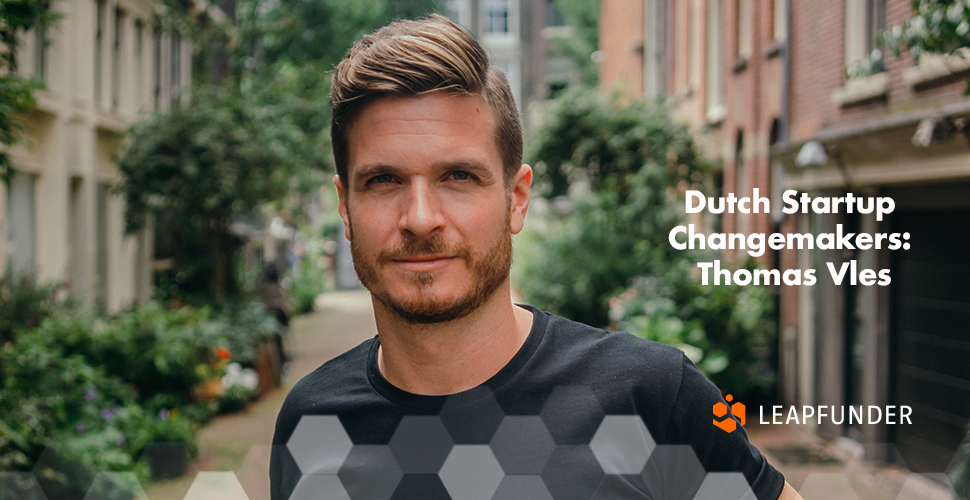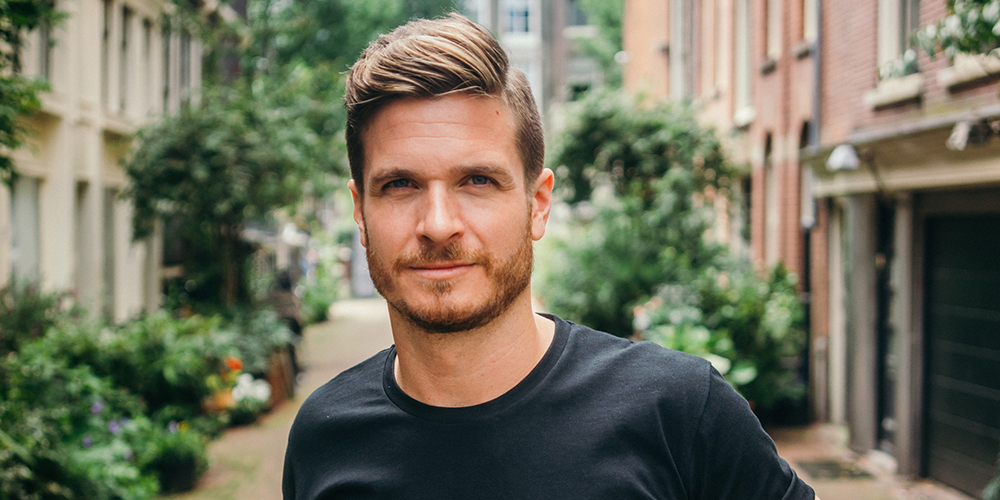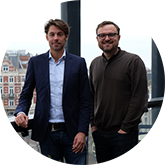Thomas Vles, the Managing Director at Dutch Startup Association, is a true, all-around entrepreneur. With his broad educational background, extensive skill set, and social aptitude for networking and bridge-building, he has been able to effortlessly blend his passion with his purpose: creating companies, opportunities, and products that improve the everyday lives of a new generation. Find out how he entered the startup world, what lessons for founders he shared with us and what he predicts for the Dutch startup ecosystem in the near future.
 1. Hi Thomas, thank you for agreeing to do the interview. Could you tell us a bit about your background and how you entered the startup world?
1. Hi Thomas, thank you for agreeing to do the interview. Could you tell us a bit about your background and how you entered the startup world?
After studying Physics and Psychology, my first startup experience was an internship at an e-health startup. I stayed there during my studies and worked there for 1,5 years after. The company grew from 7 to 45 employees during my time there because they received their first funding during that period.
Then I went to the corporate world and started working at Squarewise, an international consulting firm that focuses on energy, innovation, and mobility challenges. I did a lot of international work there, among other places in Norway, Spain, UK and France.
After a couple of years, I started my startup, Poopy Cat. I teamed up with a friend, who was an industrial engineer, to work on the product that turned out to work. Naively, I started raising funds, and in three weeks, I closed the first round of seed financing for the company. It usually takes six months, but somehow it worked. It was the dream experience of every founder. We started as the two of us and got to a team of 10-12 people. We had different offices in Amsterdam and gradually grew the operation to 18 countries. We had great success with highlights such as Oprah Winfrey and the Italian Vogue talking about us; for some reason, our marketing worked everywhere. Eventually, we sold the company to the market leader in the Netherlands.
After that, I did some concepts in the music industry. My latest venture was ‘wedoido’, which is a wedding planning app. We conceptualised a product which is based on image classifier algorithm, a tool that translates a mood board to a bookable scenario.
2. You’re now the Managing Director at Dutch Startup Association. Tell us about your mission there!
We want to make the Netherlands the startup state of Europe, which is a very ambitious mission, but we believe it’s possible because we have a lot of things set already.
Dutch Startup Association operates on three pillars. During ‘normal times’, the pillars are lobby, community, and research. The lobby is mainly focused on positively stimulating entrepreneurship in the Netherlands. The community entails events and connecting founders; letting them share practices, making sure that the ecosystem helps itself to grow faster. The research is more about giving our stakeholders (such as the media and politicians) the right ammunition so that they understand what is happening in the ecosystem, and we can help them with their decision making.
During ‘corona times’, we have the same pillars, but the lobby is more focused on the protection of startups. A lot of startups are in danger, and the legislation is not really fitting for startups right now, so we are very much involved in creating loans for startups and making sure it’s done properly. In the community, we started the ‘ReStartup’ program that connects our corporate partners with startups. The program helps startups to prepare for the recession that will follow after this crisis. When it comes to research, we evaluate government measures and guide them into reassessing how they deploy their tools and how to handle that.
My ambitions are big, so we are going to do a lot more. We are going to create more programs for founders, for example, start a mentorship program.
3. We know you enjoy creating new ventures as well as advising and investing in startups, but what is it about the startup world that particularly attracts you?
To me, startups are the engine of the future and economy; innovation mainly comes from this area, and that’s what I like. The process of having a concept and then making it real, but also being able to be agile and to pivot into new ideas is amazing. I think it’s super important for the world to have startups. If you leave it up to the corporates, there will be slow and limited changes in the world.
What I enjoy a lot is that when you are an entrepreneur, you can make something that is yours. It’s your legacy, and you can make a stamp on the world. Even if it’s a small startup, you can still have a big impact on your surroundings and make the world better.
I work from the assumption that now, there are no startups that have a negative impact on the world. Sustainability used to be a trend; now it’s a condition for all new companies. Startups are the frontrunners for corporate trends.
4. As an experienced founder and entrepreneur, what are the top three lessons for founders you would share with our readers?
My number one is being enthusiastic. If you are launching a company, enthusiasm and energy are key. You need to believe in what you do because if you don’t, nobody will. If you can dream it, you can do it. You need to have an optimistic view of the world and believe in what you do, even when things fail. It’s an endurance race where optimism and enthusiasm are key for success.
The second one is related to what I mentioned before. As a startup, you are small, you can experiment, you can be agile, and that’s a big advantage you have in comparison to larger companies. You can be quicker than others. Don’t be afraid to make mistakes; just go for it and learn from your mistakes while improving and embracing the process.
The third one is not to celebrate too soon. Launching a startup doesn’t end when pulling in your first customers. Making a sale doesn’t mean success, and you shouldn’t be too dependent on one customer. Hard work and not taking things for granted makes the difference.
5. What’s the next big thing in the startup world? What do you predict for the Dutch startup ecosystem in the near future?
I want to start this answer with a quote: ‘Never waste a good crisis.’ A crisis is always a good ground for new startups to come. Take Zoom and Miro as examples.
We have a great ecosystem, number 3 in Europe according to StartupGenome, but in terms of government coronavirus support, we are thinking in millions and our neighbouring governments in billions. If the government doesn’t change their policies, our ecosystem will have an insane drop and, depending on what data you are looking at, one third or even half of the ecosystem will disappear in a couple of years.
Regarding the next big thing, I hope the crisis changes the way people think. The sectors that are interesting to look at are local travel (people will still be hesitant to make long aeroplane trips) and the agri-food sector, which is starting now. The sustainable consumer trend is also very important. People don’t want to buy ‘bad’ stuff anymore. They would rather buy something circular or knowing what the materials are in a certain product.
I also want to emphasise that we need more entrepreneurs! The landscape is changing; the way companies operate is changing, the way people work is changing. Startups offer a healthier way of operating and can be rewarding for everybody to be involved in. For innovation startups are key, so the more, the better. Don’t be afraid, and just do it. Startups are essential for recovery and resilience of our economy, the future of our jobs and even the planet.
Thank you very much for your insights, Thomas! We wish you the best of luck in your future endeavours.
Join our network of startups and investors!


